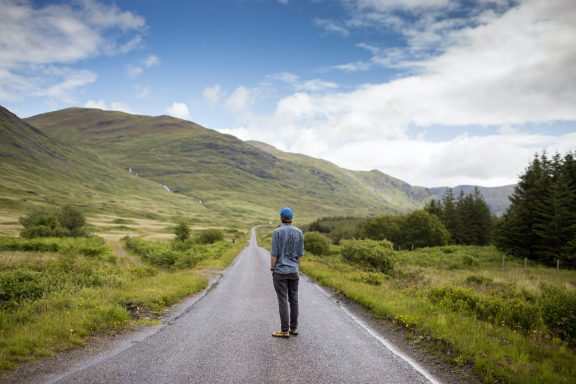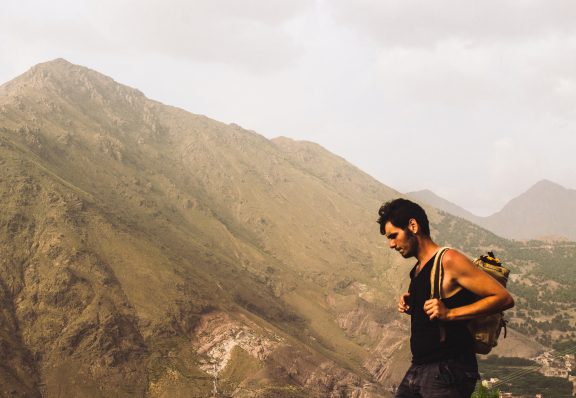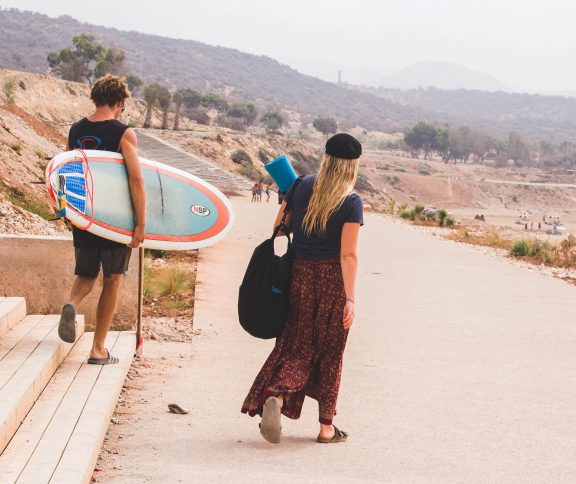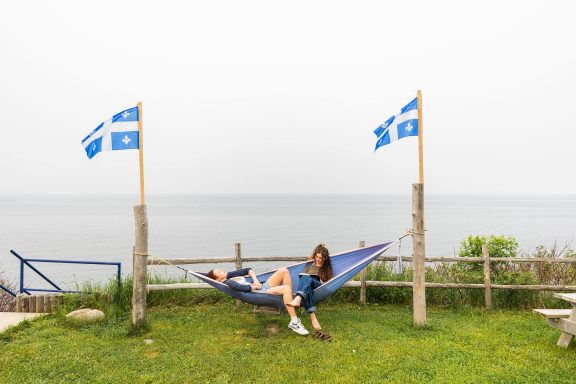10% off your next stay!
Join the Saintlo adventure and enjoy 10% off your next stay in Montreal and Ottawa.

In this article:
You’ve been dreaming of leaving on a big trip for years, saving your money and making plans. Meanwhile, you’ve been hearing about sustainable travel and how overconsumption and air travel harms the planet. There must be some ways to live out your dream without causing any harm, right? Not to worry, there are plenty. Here are a few ways to minimize your travel impact!

Before looking at how you can contribute to a greener tourism industry, here are a few figures to do the math on what currently concerns the citizens of the world.
Those are the numbers, but how about a few real-world examples? Well, in Iceland, the green moss is disappearing from their trails as more travellers hike them. In Peru, the rocks of Machu Picchu are crumbing under the feet of the crowds, while in the Philippines, the mangroves are disappearing. Almost everywhere, the local fishing is getting worse, and countless plastic water bottles can still be found along railway tracks and river banks the world over.
You’re probably telling yourself that as a budget backpacker any action you take is just a drop in the bucket when the issues are so massive. Well, the actions suggested below won’t change the planet’s ecological history, but they can encourage local decision makers wherever you travel to rethink their ways.
When it comes to making an impact, what you actually consume speaks louder than words, because the tourism industry adapts to consumers’ needs as represented by how they spend. Your little actions can have local impacts that together with the actions of others, can make local changes, which in turn send an encouraging message to larger governments that change is happening.
Single-use plastic is still common, particularly in Asia, but by travelling with a few reusable objects, you’ll keep countless unnecessary single-use products, like plastic bags, disposable utensils and polystyrene (e.g. Styrofoam) containers, out of circulation.
Actionable ideas: For just a few dollars, you can get yourself a utensil kit and a reusable, foldable bag to keep in your daypack. You’ll find plenty of space-saving collapsible containers on the market when you shop around so that when you buy local street food, you have the merchant fill up your own container rather than pack your meal in throw-away packaging.

We drink an astronomical amount of water, especially when we travel in hot climates. If each of us consumed a 500 ml bottle bought on one streetcorner and threw it away on another, imagine the planetary scale of bottles in dumps and water bodies the world over.
Actionable ideas: There are plenty of potable water solutions on the market these days. You can carry with you a filter straw, a bottle with a built-in filter, a Steripen UV water purifier or water purification tablets. You’ll always have potable water conveniently in reach, and you’ll avoid waste. I’ve had a Steripen for 13 years and it’s still going strong, even after several months of travelling every year. That’s a hundred dollars well invested!

It’s mass tourism that harms ecosystems the most. Of course, everybody wants to see the “Seven Wonders of the World”, but what’s another selfie in front of the Eiffel Tower when the world is full of wonderous places?
Actionable ideas: If you’ve settled on the country you want to visit, then dig a little deeper in your research to discover the places where you’ll enjoy an authentic personal experience rather than a pre-packaged tour. Find smaller cities or even villages where you can actually mingle with the locals—and even give back with a little boost to their local economy.
If you feel you need to take a Galapagos cruise or disappear for a week at a Bali resort, you can go all in but also take the time to get properly informed. You may find a package deal that includes a scuba-diving course, but keep in mind that some locations and operators are greener than others. You just need to take the time to research them online to make the right choice.
Actionable ideas: Look into environmental accreditations and seek out suppliers who respect them. Book accommodations that make a real effort to be more sustainable, taking into consideration things like waste management, employee equity and large format shampoos instead of tiny, disposable containers. Encourage local companies who are sensitive to their environmental footprint. Though they may more expensive, the extra dollars will go toward a more rewarding experience.
For example, visit the Montréal Hostel, which offers a more planet-friendly lodging option by promoting sustainable development. Find out how.
Sure, an ambitious traveller can now see 17 countries in Europe in 21 days or four South American countries in two weeks, but what do they really get out of it other than more items crossed off their bucket list? Given the little vacation time we have, it’s only natural to want to see the most possible in the least time, but the trade-off is tons of energy, higher-cost transport and more pollution. Why not go for the most fulfilling experience instead?

Actionable ideas: Slow down to better appreciate your surroundings. Make yourself an itinerary that leaves you the opportunity to live a little more like a local. You’ll not only take fewer flights, bus/train/car trips, but you’ll have the time to really savour the culture, meet locals and live your dream. The positive side effect: more savings and eco-responsibility!

Speaking of Montreal… Who says you have to travel far from home? Instead of flying or road-tripping for hours on end, why not create short breaks close to home and encourage the local economy?
Not only will you get to know the regions around you, but you’ll also save money thanks to public transportation, diverse and affordable hostels and no currency exchange!
Naturally, though you can reduce your footprint, you can’t travel without one. But by exercising environmentally conscious travel and enjoying it to the fullest, you’ll start to think differently (as you set an example for other travellers too). The little actions that start with a conscious effort will become quick reflexes, you’ll consume less and experience more intense trips. Who knows? Perhaps on your next trip, you’ll want to try even more radical travel options, like boat hitchhiking!
Happy travels!